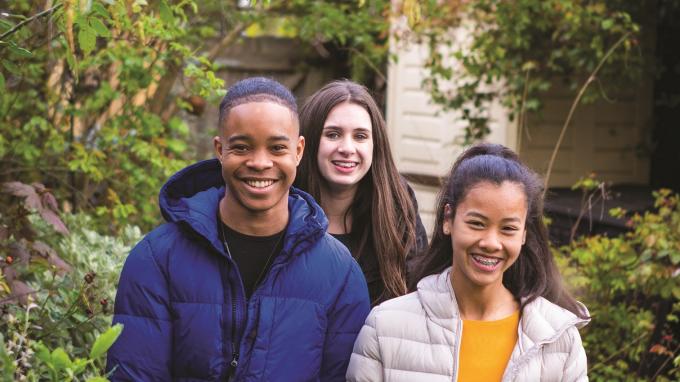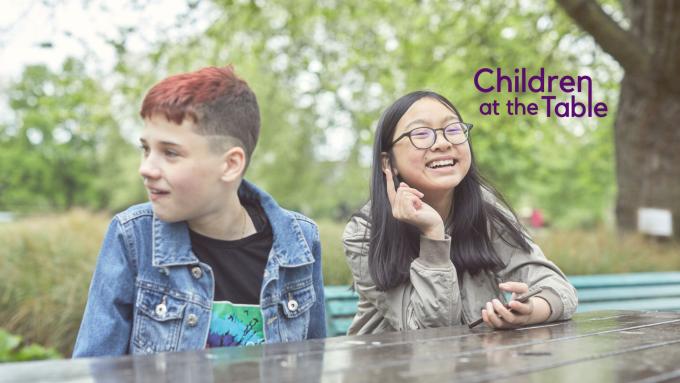"Empathy and understanding from people in power would go a long way in helping young people like me.”
In 2021-22, of the 1.4 million children estimated to have a mental health condition in England, less than half (48%) received at least one appointment with NHS children and young people mental health services and 32% of children referred for support were turned away.
And whilst mental health problems can affect any of us, they're more common among people who are LGBT+. This may be linked to people's experience of discrimination, homophobia or transphobia, bullying, social isolation, or rejection because of their sexuality (NHS, 2023).
The 2017 National LGBT survey reported that when accessing mental health support 51% of the 108,000 respondents felt they had to wait too long, 27% were worried, anxious or embarrassed about going, and 16% said their GP was not supportive (NHS, 2018).
At our recent Children At The Table event, we heard from Cody, Alasdair, Erin and Alastor, who are all, or have been, supported by one of our services in Leeds that supports LGBT+ young people. They spoke about their experiences of accessing mental health support as young people and the changes they want to see from the Government.
Accessing mental health support and having someone to talk to
When discussing mental health support, the young people who joined us said they felt that waiting lists were too long, the blanket support they received wasn’t personal to them, and that having someone to talk to was incredibly important.
“It can be frustrating to be told your case is too complex and you have to pick just one option to focus on, rather than looking at all of my issues and needs as a whole”, said Alastor (18).
“Individually, people do want to help, but [it can feel like] the support is not there”, said Alasdair (19).
For these young people, one of the most important things was having a safe person to talk to about their needs.
Waiting lists for services are so long and it can take such a long time to get any support with mental health or a diagnosis for additional needs. It’s so important and can be so helpful just to talk to someone.
Erin, 19
Feeling different and the power of empathy
Many of the young people who joined us said they felt different because of the lack of support they received. Alasdair (19) said: “A common theme amongst young people with additional needs is that they can spend almost their entire school career being denounced as different in a negative light”.
The group also felt it was important to recognise people’s differences and understand young people need different levels of support that's personalised to them, taking into account the difficulties they may be facing.
Empathy and understanding from people in power would go a long way in helping young people like me, who are struggling to get the right support they need.
Cody, 16
Making change
Cody, Alasdair, Erin and Alastor agreed that young people should have better access to mental health support that is safe and supports young people in multiple ways.
That’s why we are part of the Children At The Table coalition, to make sure the Government prioritises young people in their decision making and ensures safer, happier, healthier, and more hopeful futures for young people.

Support for young people
Being a young person today can sometimes feel heavy. If you’d like some help to lift the load, we’ve services and information that can make life a little lighter.

Children at the table campaign
We’ve come together along with four of the UK’s largest children’s charities to make sure the next government has a plan to put Children at the Table.

Mental health support
Whether you’re feeling good or not so great, it’s important to understand your mental health so you feel your best self as often as possible. Our mental health hub is full of useful articles and advice on how to get support with your wellbeing.

